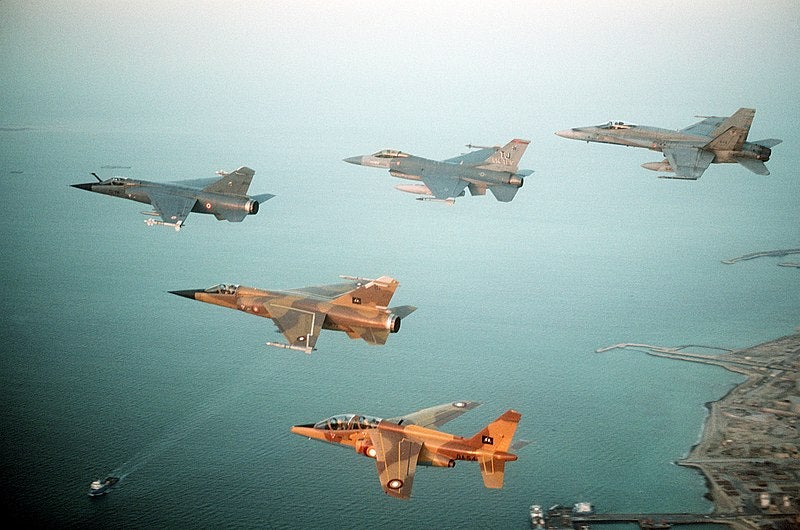Agreement Allowing Qatari Military Aircraft To Be Stationed in Turkey Goes Into Effect
Within the framework of the recently heightened military cooperation between Qatar and Turkey, a new step is being taken. The agreement allowing the temporary deployment of Qatari Military Aircraft and Support Personnel in Turkey went into effect last week. This information was published in the Turkish Republic’s Official Gazette. The notice reads: “The Technical Regulation on the Temporary Deployment of Qatari Military Aircraft and Support Personnel in the Territory of the Republic of Turkey between the Government of the Republic of Turkey and the Government of the State of Qatar, which was signed in Doha on March 2, 2021, and authorized by Law No. 7386, was approved, in accordance with Articles 2 and 3 of Presidential Decree No. 9,” it was stated in the decision.
“Technical regulation” was the name of the agreement that accompanied the decision. It was stated in the arrangement that the “purpose of this technical regulation is to determine the rules, principles, responsibilities and needs to regulate the host country support of the Republic of Turkey regarding the temporary deployment, placement, and use of Qatari military aircraft, personnel, and equipment deployed in regions permitted by the Government of the Republic of Turkey.”
During the visit of Turkey’s Chief of General Staff, General Yaşar Güler, to Doha on March 2, 2021, a technical arrangement was signed on behalf of the Qatari government with the Chief of General Staff, Lieutenant General Ghanem Bin Shaheen Al-Ghanem, on the deployment of Qatari military aircraft personnel in Turkey. The agreement was drafted within the framework of the “Military Field Training, Technical and Scientific Cooperation Agreement between the Government of the Republic of Turkey and the Government of the State of Qatar” which was signed on May 23, 2007. On June 15, 2021, the agreement was presented to the Turkish Grand National Assembly. According to a statement issued at the time by the Turkish Grand National Assembly, the aim of the agreement was to contribute to the training and experience of Qatari pilots, as well as to determine the rules, principles, responsibilities, and needs regarding the obligations of the elements of the State of Qatar, with the support of the host country provided by the Republic of Turkey.
With the bilateral agreement approved by the Parliamentary Foreign Affairs Committee and the parliament, Qatar may send up to 250 military personnel and 36 military aircraft to the locations decided upon by the General Staff. The aircraft in Qatar’s fleet will be able to fly in Turkish airspace. Airports will also be made accessible to Qatari aircraft. These aircraft will be assigned a separate flight number, and it will be made sure that they can be identified from domestic aircraft. According to the agreement, Turkey would coordinate in advance to determine the number of Qatari personnel and aircraft. Which military aircraft Qatar will station in Turkey under the agreement is not yet known. However, according to reports in the Turkish and Qatari media, C-130J Super Hercules and C-17 transport aircraft, as well as 12 Qatar Rafale fighters and 10 Mirage 2000 fighter jets, will all be deployed in Turkey as part of the agreement.
All military aircraft operations must receive the preliminary approval of Turkey’s relevant authorities within the parameters of the Agreement. In order to verify adherence to the rules during the sorties of Qatari transport planes, an observer Turkish pilot will be in the cockpit. The observing pilot will be given permission to alter the aircraft’s assigned airspace or course. During the training flights of Qatar’s aircraft, a Turkish aircraft will be present. Unless Turkey allows, electronic equipment and sensors for photography, reconnaissance, and intelligence gathering on Qatari aircraft, will also be turned off. The agreement also covers the use of Qatar’s transport aircraft for airdropping and jumping as well as the transportation of military equipment, personnel, dangerous goods, ammunition, or humanitarian aid materials for the host country ‘s military both inside and outside of Turkey. The agreement will be in effect for five years. However, unless one of the Parties notifies the other Party in writing of its intention to terminate the agreement, it will automatically be extended for one year.

